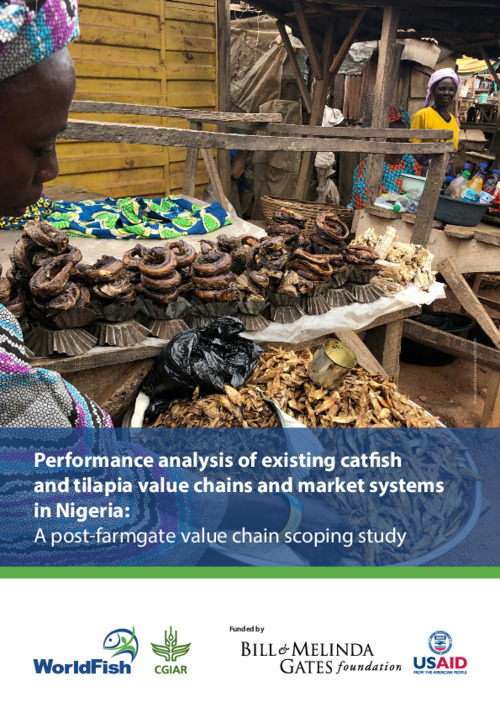Performance analysis of existing catfish and tilapia value chains and market systems in Nigeria: A post-farmgate value chain scoping study

Nigeria is the largest fish producer in Sub-Saharan Africa. Fish plays a crucial role in supporting the
livelihoods of fish producers and actors along the post-farmgate value chain in the country. Despite the
virtues of the aquaculture and fisheries subsectors to enhance the livelihoods of value chain actors, major
gaps exist related to efficiencies of the fish value chain. These gaps include the financial performance of
post-farmgate actors, gender-disaggregated data on value chain actors, the roles of women and youths
in fish trade, and post-farmgate food safety practices. The aim of this study is to fill the data gap in the
post-farmgate fish value chain to provide evidence-based policy suggestions to enhance the aquaculture
subsector in Nigeria. Using primary data, our study provides evidence on the economic, environmental,
social, nutritional and food safety performance of the post-farmgate fish value chain. Our study finds that,
in general, fish value chains are economically viable (profitable) and inclusive, as women and youths own
over half of post-farmgate value chain activities. These results are of interest to both private and public
sector decision-makers and policymakers because they provide quantitative data on value creation
(fish sales, employment, service provision), social performance (women and youth empowerment), and
environmental, nutritional and food safety challenges along fish value chains.
Permalink
Date Available
Type
Publisher
Countries
Copyright
CC-BY-NC-4.0
Research Themes
Language